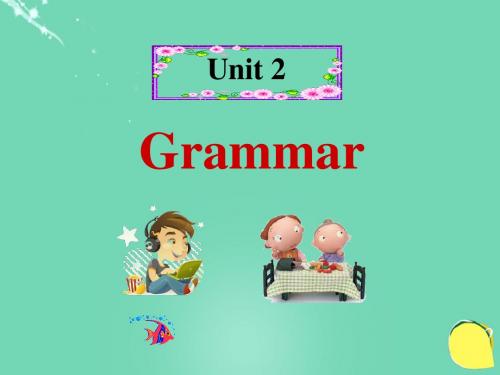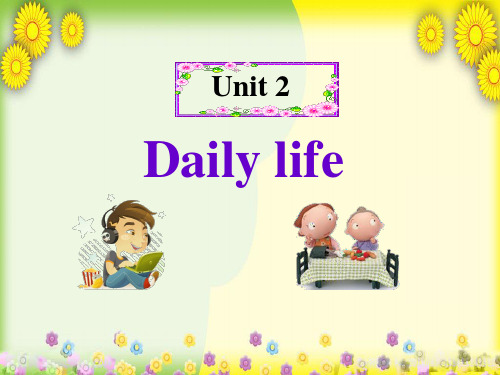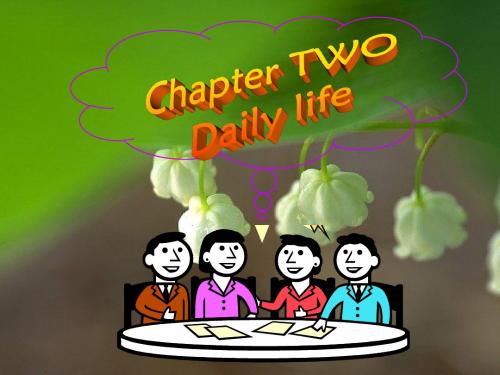优品课件之七年级英语上Unit2 daily life(牛津深圳版)
- 格式:docx
- 大小:31.36 KB
- 文档页数:14






七年级英语上Unit2 daily life(牛津深圳版)Unit Two Daily life教案授课教师日期时间学生年级初一科目英语课题牛津深圳版 Unit Two Daily life 教学目标要求掌握本单元的单词、短语,一般现在时教学重难点分析一般现在时的变化教学过程课前准备本周学校学习内容掌握本单元的单词、短语,一般现在时存在和要解决的问题动词碰到第三人称单数时,要进行相应的变化一般现在时的功能一般现在时常用下列副词或副词短语来作时间状语:一般现在时的构成知识要点概述 Unit Two Daily life Reading 1. Look at these pictures and answer the questions about your daily life. look at= have a look at 看一看; answer the questions= reply to the questions(reply to 更强调书面回答,较正式); daily life:日常生活 2. Which of these things do you do once or twice a week? 助动词do/does/did后面要跟动词原形; once a week, twice a week, three(four/ five…)times a week 3. brush one’s teeth刷牙; watch television= watch TV看电视; play table tennis打乒乓球;ride a bicycle骑单车; play the piano弹钢琴; wash my clothes= do some washing洗衣服拓展:wash one’s face; comb one’s hair; pack one’s bag; do some cooking; go shopping= do some shopping; play computer games 4. Look at the title of the article on page 17. Then circle the correct answer. the title of…: ……的标题; on page 17:在17页在具体体一天用on; 在具体几点钟用at; 在一段时间(如上/下午、星期、月份、季节、年),则用in on Monday; at 4 o’clock; in the morning; in summer; circle:圈出,划出;the correct answer:正确的答案 5. How does Sam go to shool? 特殊疑问句:特殊疑问词+ 一般疑问句 6. a day at school 学校的一天; by Sam: 由Sam写的 at school 在上学 at the school在学校(可能是老师或家长) in hospital: 生病住院 in the hospital: 在医院(可能是护士或家属) in bed: 卧病在床;躺在床上 in the bed: 在床上(被窝里); on the bed: 在床上(如枕头) 7. I am ajunior high school student. I love going to school. junior high school 初中 senior high school 高中 primary school 小学 love doing sth.= live doing sth. = enjoy doing sth.喜欢做某事practice doing sth.练习做某事 finish doing sth. 做完某事 go to school 去上学 8. My school is close to my home, so I always go to school on foot. be close to 离……近= near =beside= not far away from family 的意思是“家庭、家庭成员”,与居住的房子无关。
当family作为整体概念的“家庭”讲时是单数;当“家庭成员”讲时是复数; house 指“家”时含义较窄,仅指“房屋”这一建筑物,一般指独门独户的房子,不指楼房; home 指“家、住所”,指一个人(或一家人)居住的地方,也可指一个人出生或长大的地方(乡村、城市或国家等)。
它具有house所没有的感情色彩 always:总是.频率副词always/ usually/ often/ sometimes/ seldom/ hardly/ never 表示频率由多到少,是一般现在时的标志。
(位于be 动词之后,实义动词前)对频率提问用 how often go to school on foot= walk to school步行去学校go to…on foot = walk to … 9. Classes start at 8 am, and I am seldom late. start at: 几点开始 be late: 迟到 be late for school 上学迟到 10. I enjoy learning about different places in the world. enjoy doing sth= like/love doing sth. very much 喜欢做某事 learn about:获悉;了解 different places in the world: 世界各地 11. We have our morning break at 9:50. have one’s morning break: 上午休息时间 have a break 课间休息 have a rest 休息一会 12. When the bell rings, I run to the playground with my best friends Tom and Jack. when:当……的时候此处连接两个先后发生的动作;也可表示两个动作同时发生,则:“过去进行时+ when+ 一般过去时”;另外, when也可对时间提问,“何时” run to…with sb. 和某人一起跑到…… my best friends: 我最好的朋友们 13. Break ends at 10:10. How Short it is! end at: ……时间结束 how+ adj. (+主+谓) = what+ (a/an) + adj.+ n. (+主+谓) how 主要修饰形容词和副词, what修饰名词。
How short it is! = What short time itis! 14. Lun ch is from 11:50 to 12:30 p.m. from…to… 从……到…… from Monday to Friday 15. Then Tom, Jack and I take part in the school band practice. take part in:参加,指参加会议或群众性活动等,着重说明句子主语参加该项活动并在活动中发挥作用; join指加入某个党派,团体组织等,成为其成员之一,意为:“参军、入团、入党”等; 和某人一道做某事,其结构为:join sb. in (doing) sth.,根据上下文,in (doing) sth. 也可以省去(join in 多指参加小规模的活动如“球赛、游戏”等,常用于日常口语); attend是正式用语,指参加会议、婚礼、典礼;听报告、讲座等。
He'll attend an important meeting tomorrow.他明天要参加一个重要会议 band: 乐队 the school band practice: 学校乐队练习practice: 名词:练习 Learning a language needs a lot of practice. 动词 practice doing sth. practice sth practice the violin practice playing the piano practise 实习.实践.指有规律的练习,特指反复练习,不断练习,如大音乐家需要不段的practice exercise是练习,一般用语,可指训练,锻炼,操练等.如spelling exercise(拼写练习), ,lack of exercise缺乏练习,do one's exercise做练习, physical exercise体育锻炼 exercise的用法:1.作可数名词用,“练习,习题,体操,功课,操练”等,常用复数。
I'm doing my exe rcises.我在做练习/功课。
Doing morning exercises is helpful to our health.做早操对我们的健康是有益的。
You should do more spelling exercises. 你应该做更多的拼写练习。
2.作不可数名词用,“锻炼,运动”。
You are weak because of the lack of exercise.你身体弱是因为缺少锻炼。
Take more exercise, and you will be healthy.多多锻炼,你会健康的。
3.作动词用,“训练,锻炼”。
You must exercise yourself in order to be stronger and healthier.为了更健康更强壮,你必须锻炼自己。
16. We make great music together. 我们一起演奏动听的音乐。
make是初中英语中出现频率很高的一个动词,它的用法主要有; make/ have/ let sb. do sth. 使某人做某事 make sb. +adj.做某人…… make fr iends交朋友 make cakes做蛋糕 make a noise发出噪音 make yourself at home像在家里一样自然 make sure确保go to …together 一起去 together with 与……一样(常用作插入语) 17. I always have a good time at school. have a good time = enjoy oneself= have fun 玩得开心 at school 在学校Unit Two Daily life Language 一、一般现在时的功能 1.表示事物或人物的特征、状态。